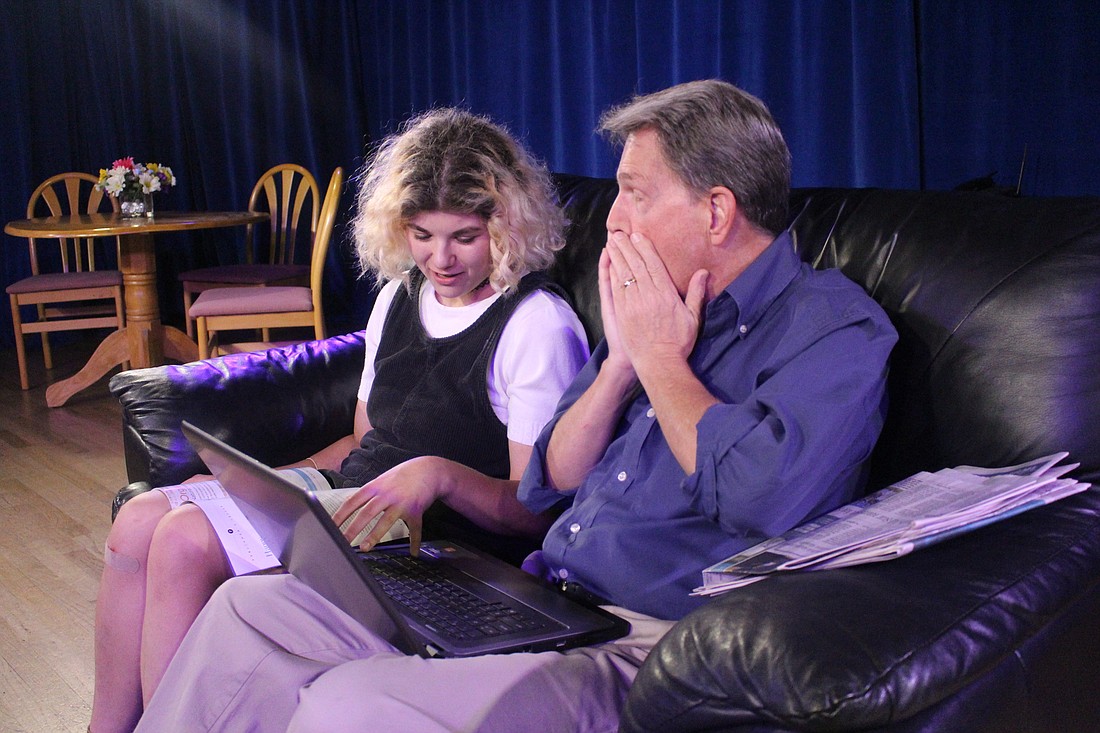- April 24, 2024
-
-
Loading

Loading

Connie Schindewolf’s “Mammoth Bones” recently premiered at the Players Backstage. Her play was the winner of the Players Centre for Performing Arts’ 2016 New Play Festival. This staged production is the prize.
Her new work walks the line between magical realism and issue-oriented drama. The action revolves around Robert (Mark Shoemaker). He’s been feeling blue lately. His daughter has gone off to college, and he can’t get work as a mechanic, thanks to the new generation of computerized cars. His funk lifts after he finds a pair of fossilized mammoth bones in his yard.
Robert is suddenly filled with a sense of wonder. Before long, he hears the trumpets of the long-gone mastodons. Is it all in Robert’s head — or is he having a mystical experience?
Director Carole Kleinberg takes a low-key approach to this personal material. Mystical visitations aside, Robert doesn’t know where he fits in the contemporary world anymore, or what he’s good for. That’s the point, and Kleinberg keeps her focus on that.
Shoemaker delivers a wistful performance as a man who has lost his way and is far too eager to accept a possibly delusional salvation. Judy Glynn portrays Robert’s wife, Vicky, as loving and long-suffering, but no doormat. Betty Robinson is supportive as Robert’s non-stereotypical mother-in-law.
David Meyersberg does a slow burn as Robert’s unheeded psychiatrist, who’s quickly replaced. Jesse Rosenfeld puts in a comic take as the new guy. His character comes off as an oddly juvenile, joking psychiatrist — until you realize he’s not what he seems.
(Some spoilers may be unearthed after this point.)
Schindewolf’s intriguing, touching play begins on a note of ambiguity. In the first act, you don’t know if the mammoth noises are all in Robert’s mind or actually sounding across the eons. But the second act spells it out: The auditory hallucinations are a synergistic side-effect of his medications.
Simply put, the mammoths aren’t real. So much for magical realism.
The play tells you why Robert hears the mammoths. I would’ve preferred to leave it an open question.
But the playwright didn’t see it that way.
What’s left is a poignant investigation of what it’s like to be sidelined. Our society labels people past a certain age as “fossils.” Robert is one of them — and he’s clearly alive and kicking.
By the end of Schindewolf’s play, you’ll know exactly how that feels.